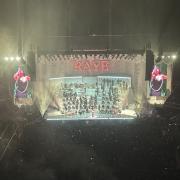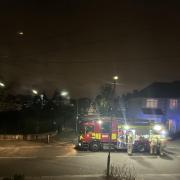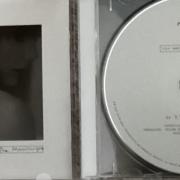
The Hate U Give is a book written by the author Angie Thomas based on the shooting of unarmed black man, Oscar Grant that was developed into a feature film in 2018. Both the book and the film depict the tragic story of sixteen-year-old black girl, Starr Carter, who was the only witness to the police shooting of her black childhood best friend, Khalil by a white policeman. Throughout the movie, representations of such powerful themes that are of immense importance in today’s society such as affiliation, the power of voice and racial injustice are shown.
The idea of racial injustice in The Hate U Give is shown through the basis of the movie which is primarily Khalil’s shooting as he was a defenseless, unarmed black man who in no way was able to endanger the policeman that ended up shooting him. This shows the unjustness of his death. The racial injustice is further symbolized in the movie through the media and government as instead of fighting for what’s right and trying to bring justice to the dead, they try to cover his death up by depicting him as a drug-dealer first and foremost, instead of an innocent victim to unnecessary police brutality. What’s worse is that after Starr testifies on Khalil’s case in court, the grand jury doesn’t charge the white policemen at all leading to the entirety of the Garden Heights community using peaceful protesting (which quickly becomes violent) to show their anger and frustration with the prevalence in the failing criminal justice system, especially in the case of justice for Khalil.
The representation of racial injustice isn’t just shown within the plot of the movie, but also in the title The Hate U Give which actually has an important message behind it as it refers to the idea that children are continuously being raised in destructive environments with discrimination and brutality everywhere they turn and that if it doesn’t stop now then the cycle of abuse and racism will never end. The title is represented throughout the movie, especially when Starr’s little brother Sekani pulls a gun on King, a local drug dealer who in countless moments in the movie created an unsafe environment filled with violence and crime showing how the hate that is given to little infants via discrimination and violence can harm everybody.
The theme of fitting in and affiliation in the movie is shown through main protagonist, Starr’s struggle to balance her rich, privileged mostly white school, Williamson life and her Garden Heights life. This struggle that Starr fears to face head on makes her feel like she can’t be her true self wherever she is, as she thinks her school friends will think she’s too 'hood' and that her Garden Heights friends will think she’s too good for them. Throughout the movie, Starr’s story of fitting in is narrated as she settles uncomfortably in a middle ground in her life, thinking that its not possible for her two worlds to combine. However, as the story develops, her courage and bravery revolving around Khalil’s death and racial injustice makes her realize that she doesn’t need to hide who she is and that she can embrace both sides of herself as that’s who she truly is.
The theme of voice and its power are also a strong part of the movies main story as if Starr hadn’t spoken up for Khalil at his trial, then the riots in the aftermath would have never taken place and so she wouldn’t have come to the realization that the idea of destructive environments filled with racism and brute force needs to stop, so she wouldn’t have decided to keep Khalil’s memory alive through her continuing to fight against racial injustice. Additionally, if Starr hadn’t spoken up to her privileged white friend Hailey from Williamson about the seriousness of the shooting and the importance of getting justice then she wouldn’t have ever embraced both sides of herself and felt like she belonged in both worlds at the same time instead of feeling like somewhat of an outsider stuck between two identities.
In conclusion, this movie isn’t just a good movie because of the outstanding performances by its cast, the great directing or the powerful moments of tension portrayed on the screen, but instead because it has a truly powerful meaning behind it that can correlate to real life through the criminalization of black men everywhere and the other racial epidemics that society struggles with everyday.



























